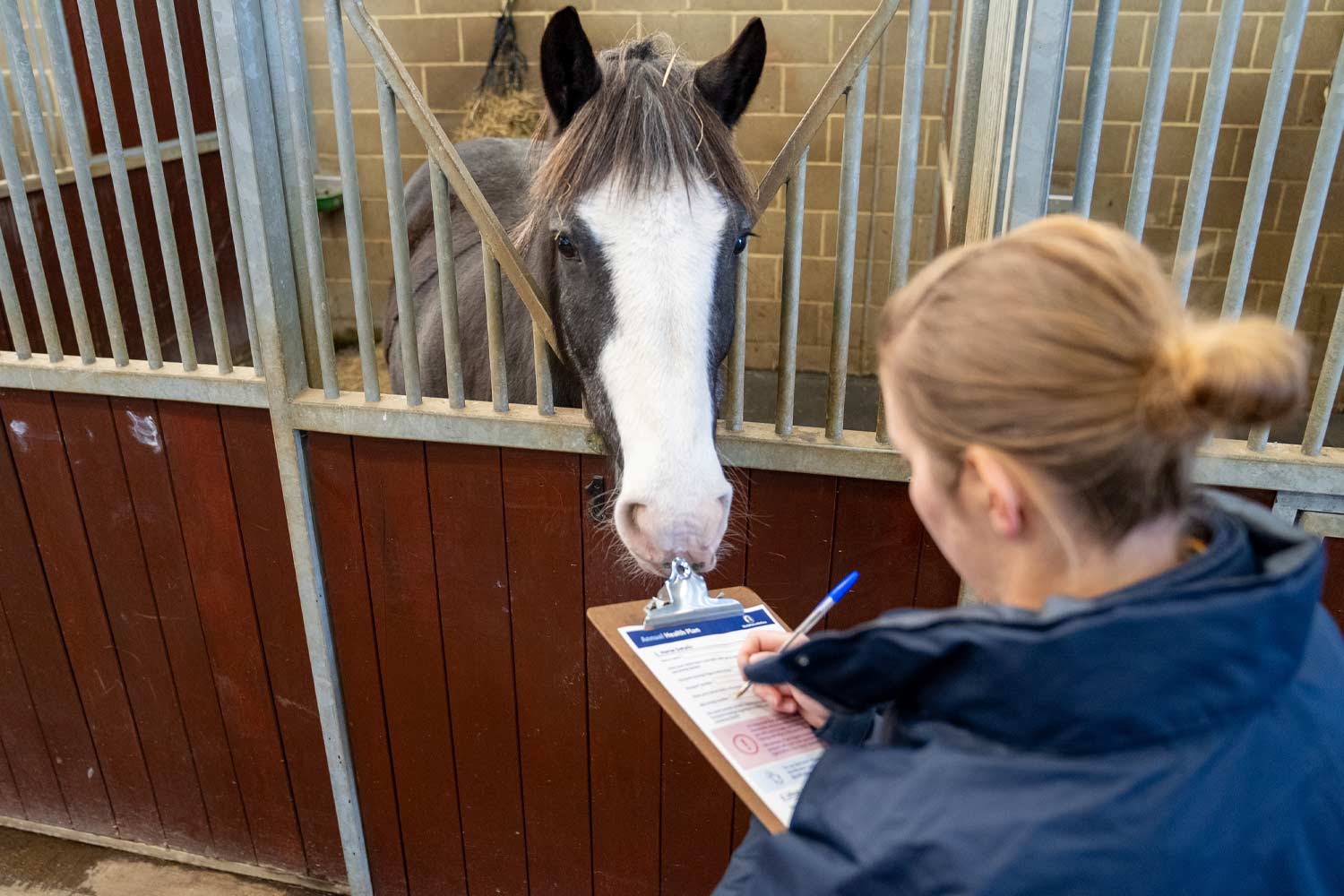Caring for a horse properly is never going to be cheap, but there are areas where you can minimise costs.
Cutting costs
Owning a horse can be expensive, but it’s not too late to think about reducing costs where you can, as long as this doesn’t compromise your horse’s health and welfare. Areas where you can look to reduce costs include:
- Livery / location – can you change to a cheaper livery package or move to a closer yard to reduce travel costs?
- Feeding – Does your horse need a shelf of supplements? Is there another brand that does a similar feed to the one you use but cheaper? Can you buy hay in bulk?
- Bedding – Can you buy in bulk? Is there a cheaper alternative?
- Horse share – Is there someone who can split the cost of horse care with you?
- Working together – Can you use a yard rota? Can you all order from the same supplier?
- Routine preventative health care – Don’t compromise on vet care, farrier visits, deworming (including faecal egg counts and saliva sampling) and dentistry.
- Farriery – Can you discuss shoeing options with your farrier? Do they need shoes all-round or just fronts? Could your horse go barefoot?
- Resist marketing – Does your horse need the latest matching set? Can you use what you already have? Can you repair any equipment instead of buying new?
False economies
Short-term savings that might affect the quality of your horse’s care and welfare will cause you more problems in the long run, so don’t risk compromising on the following essentials:
- Proper veterinary care
- Vaccinations
- Regular hoof care
- De-worming and dental checks
- Professional services
- Repairs to damaged property and equipment are vital to safeguard your horse’s safety and security.
- Insurance
Be realistic
It is vital to look ahead and budget effectively to meet the needs of your horse. Remember that horse care costs in the winter increase so be prepared for this if taking a horse on in the summer. Ideally, put a little away every month or when you can, to help you manage if an unforeseen circumstance arises. Not facing up to looming difficulties can greatly reduce the options available to you once the problem has become too overwhelming to ignore. If costs are too great and you’re considering rehoming, please see our Rehome Responsibly information for further details.
This information has been produced by the member organisations of the National Equine Welfare Council (NEWC). For further advice, please e-mail info@newc.co.uk for details of your local NEWC member.
Cutting Cost without Compromising on Welfare

For further details and advice on how to cut the costs of horse ownership without compromising on welfare, you can download this useful guide.
Cost of Living Crisis Surveys
NEWC released two cost of living related surveys at the beginning of 2024. One was for the public to respond to in relation to the impact the cost-of-living crisis on their ability to meet the needs of their horse(s) and any changes people have made to the management of their horses as a result of increased costs. The other went to NEWC and non-NEWC rescue centres and sanctuaries. You can find the results and reports of the surveys.
For more information of how to cut costs without compromising your horse’s welfare, please see our webinar about cutting costs, not care.
Popular advice in General advice

Horse theft: how to prevent it
Sadly, horse thefts do happen - read our advice on how to keep your horse safe and deter thieves.

Fireworks: keeping your horse safe
Fireworks events can be a worrying time for horse owners. Read our ideas to help you and your horse have a less stressful night.
Other advice categories
All webinar categories:
Call our Advice Line
+44 (0)1953 497 238Not found the advice you were looking for? Our friendly team of horse care experts offer free practical advice. What can we help you with today? Our advice line is available 8.30am-5:00pm, or you can email education@worldhorsewelfare.org.


